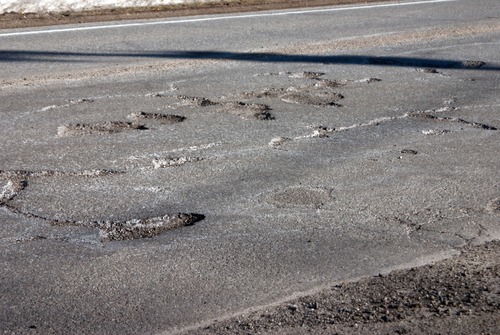
According to a report released last week, inadequate roads, bridges, and highways cost the average Michigan household $4,845 annually or around $19.3 billion statewide.
Those costs could either rise to $6,273 per household if the state keeps infrastructure funding where it is, or could fall to $2,479 per household if the state makes investments to ensure a significant improvement in the condition and performance of infrastructure systems.
The report by TRIP, a Washington, DC-based national transportation research nonprofit, found that transportation funding over the next decade will significantly impact Michigan residents’ quality of life, and affect the economic burden placed on Michigan households in the form of traffic crashes, delays caused by traffic congestion and unreliability on the state’s transportation network, extra vehicle operating costs (VOC) from driving on roads in poor condition, and in the cost to repair the state’s structurally deficient bridges.
“This report shows what people all over Michigan already know – transportation and infrastructure funding is critical for our future,” said Lansing Mayor Andy Schor. “Local governments across Michigan desperately need funding from our state and federal government to invest in our crumbling roads, streets, bridges, and aging underground infrastructure. The City of Lansing and our residents are feeling the effect of decades of underfunding when they drive down our streets and when they have to pay for costly auto repairs.”
The report, “Where Are We Going?: Michigan’s Current & Future Pavement and Bridge Conditions, Safety, and Congestion and Reliability Levels and the Impact on Michigan Households, Based on Investment Levels over the Next Decade,” looked at the current performance and condition of the state’s roads, highways and bridges, then analyzed the changes under three possible investment scenarios – maintaining the current level of funding, increasing the level of funding and significantly increasing the level of funding.